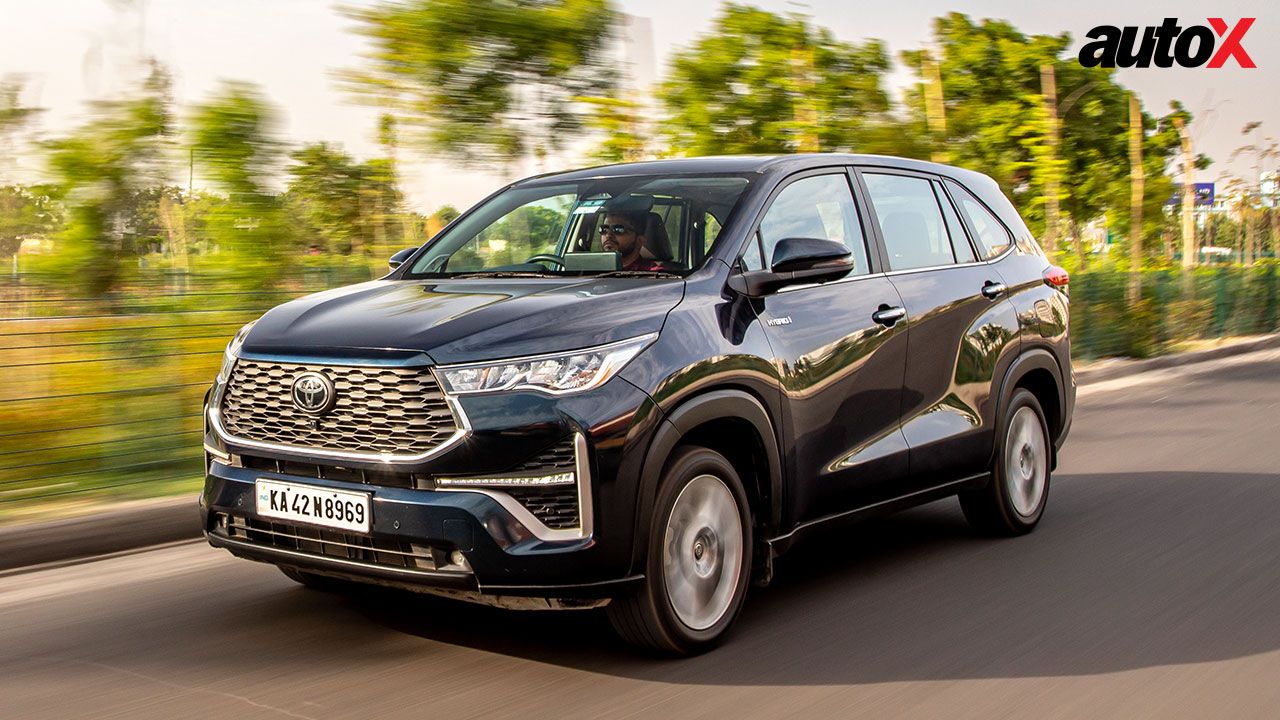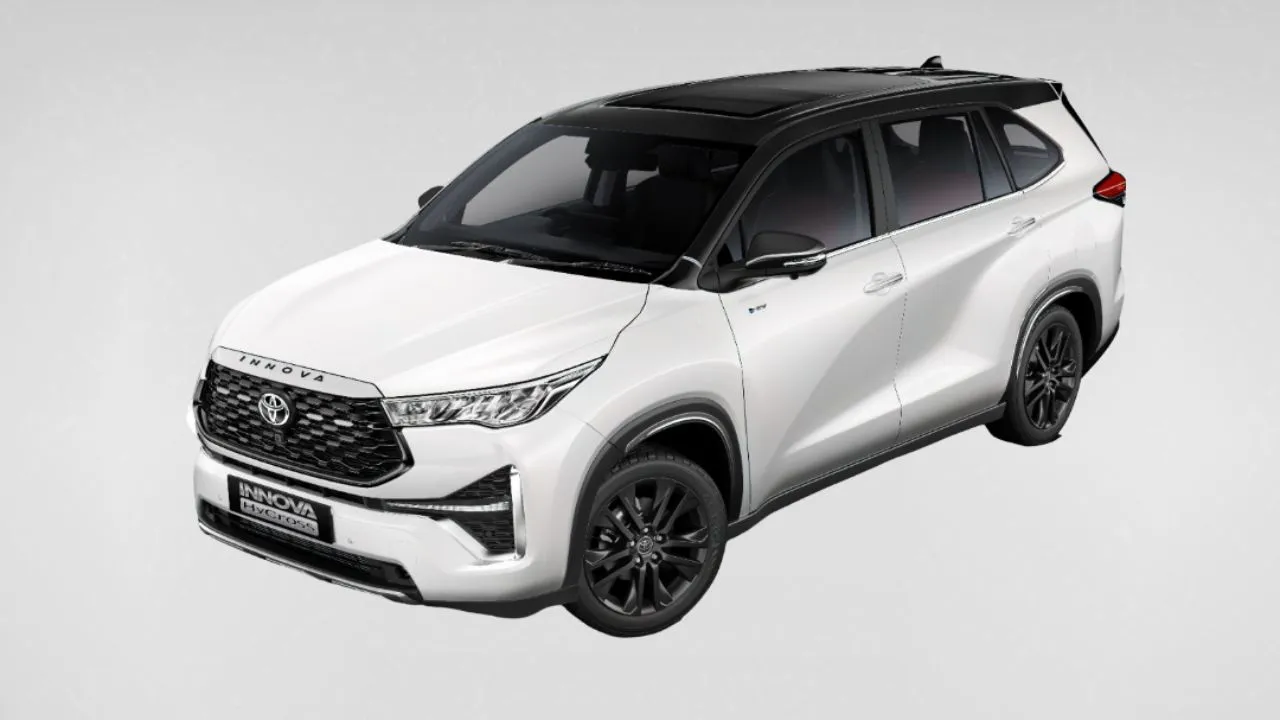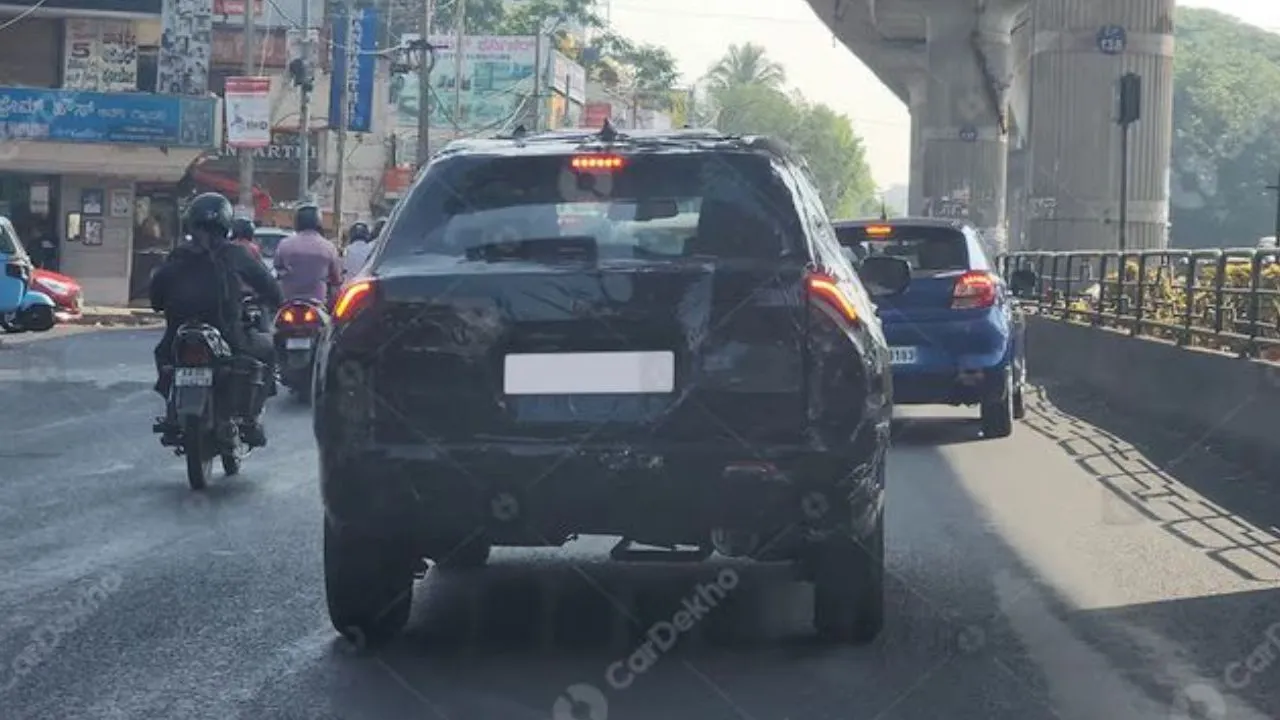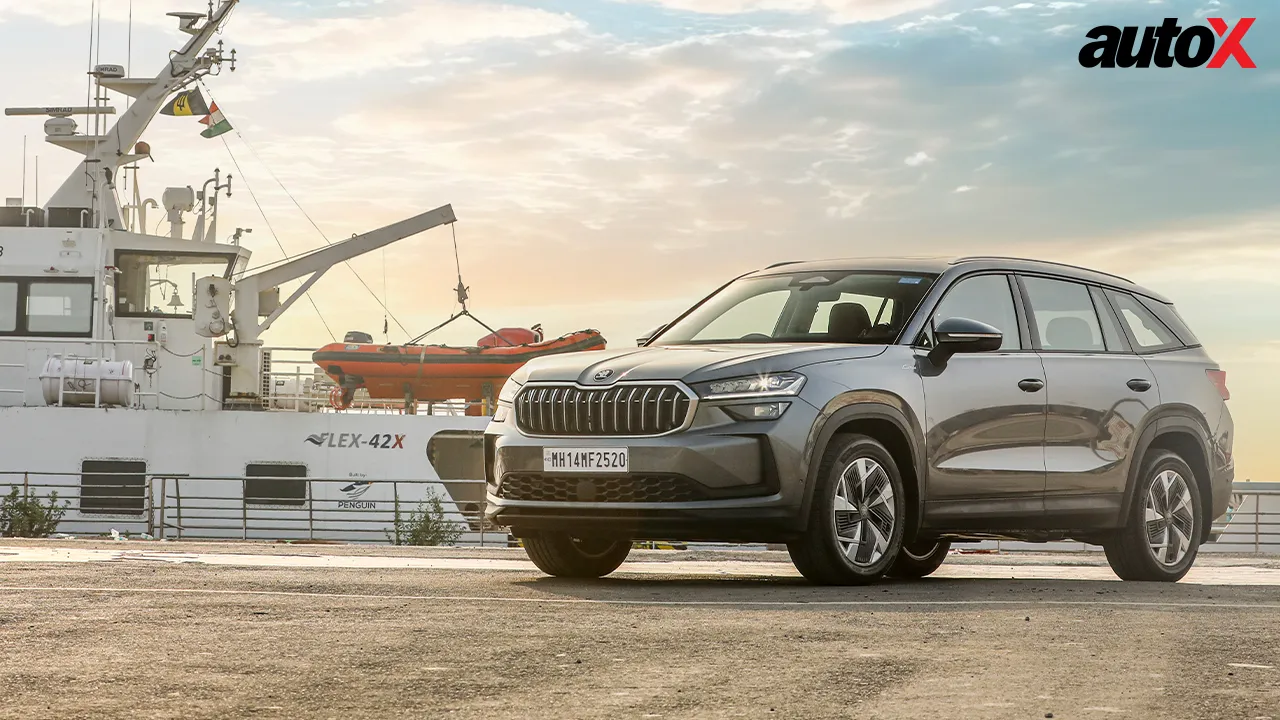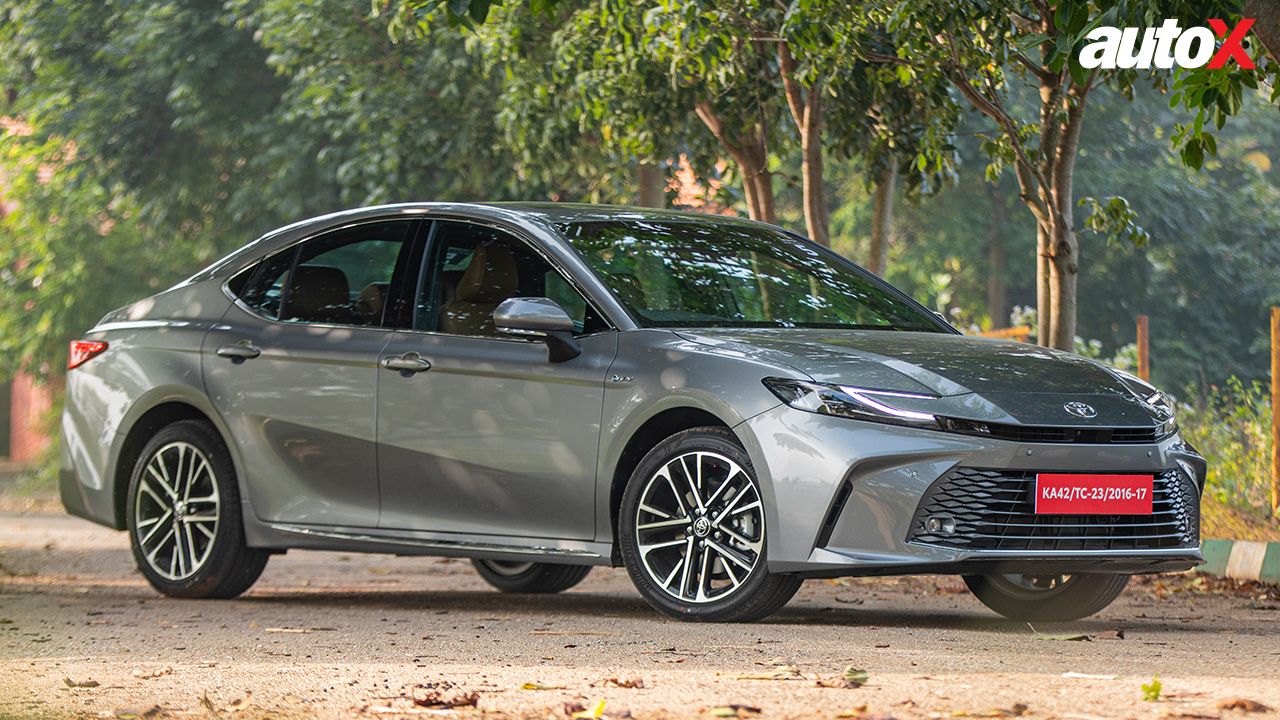Bharat Mobility Expo 2025: Toyota Urban Cruiser BEV Concept Unveiled
Bharat Mobility Expo 2025: Toyota has not yet revealed the official launch date for the electrified Urban Cruiser, but the car is expected to arrive here by the end of the year.

Bharat Mobility Expo 2025: Toyota showcased the Urban Cruiser BEV concept, a rebadged version of the Maruti Suzuki e Vitara, (also debuted at the Auto Expo). While both models share a similar shape, the Toyota version stands out with some key design differences, such as a chrome strip linking the headlights, with a set of 12-piece LED DRLs. Other highlights include a charging port on the front wheel arch, black door trim, aero-optimised wheels, a roof-mounted spoiler, and a prominent rear bumper with a central reflector. For the uninitiated, the Japanese automaker first showcased the Urban Cruiser EV concept in Brussels in 2023, and later as the production-ready EV in December 2024.
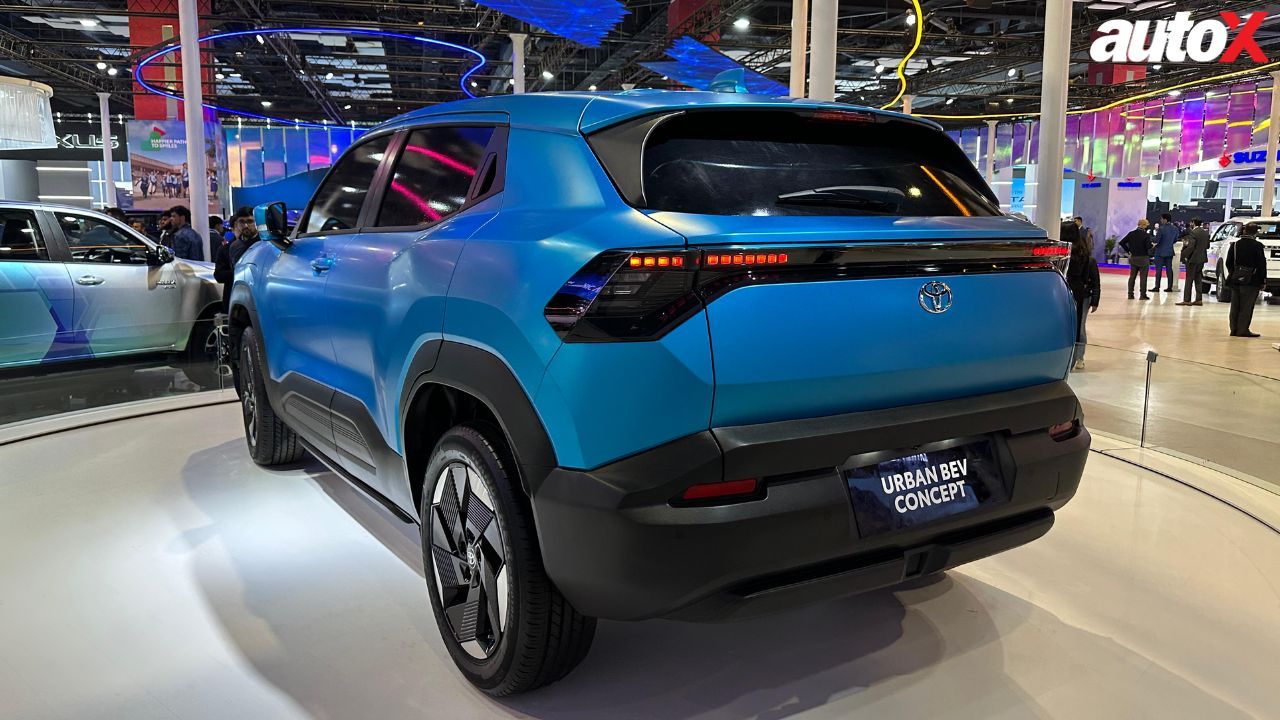
Toyota has not yet revealed the official launch date for the electrified Urban Cruiser, but the car is expected to arrive here by late 2025, with an estimated starting price of Rs 23 lakh (ex-showroom). It will compete with the Tata Curvv EV, MG ZS EV, and the upcoming Hyundai Creta EV.
Toyota Urban Cruiser BEV Concept: Interior and Features
The interior of the Urban Cruiser BEV closely mirrors that of the Maruti Suzuki e Vitara, albeit with a different black/grey finish. It is expected to include 12-colour ambient lighting, a motorized driver seat, a 10.1-inch touchscreen infotainment system, a 10.25-inch digital driver display, a premium JBL audio system, a fixed glass roof, and wireless phone charging.
Also Read: Bharat Mobility Expo 2025: BYD Yangwang U8 with Emergency Floating Feature Showcased
For safety, the Toyota EV could get electronic stability control (ESC), a 360-degree camera, a tyre pressure monitoring system (TPMS), and ADAS with features like lane keep assist and cruise control.
Toyota Urban Cruiser BEV Concept: Powertrain
Toyota has yet to provide specific details, but the production-spec version of the Urban Cruiser EV is expected to feature two battery options (49kWh and 61kWh), as seen in the globally unveiled model.
The 49kWh variant features a front-wheel-drive (FWD) setup, generating 142bhp and 189Nm of torque. The 61kWh version upgrades to a more powerful 172bhp front motor, maintaining the same 189Nm of torque.
Also Read: Bharat Mobility Expo 2025: BYD Sealion 7 EV Breaks Cover, India Launch by March 2025
Additionally, an all-wheel-drive (AWD) option will be offered, propelled by the 61kWh battery and complemented by an extra 64bhp motor at the rear axle, resulting in a total combined output of 181bhp and 300Nm.

